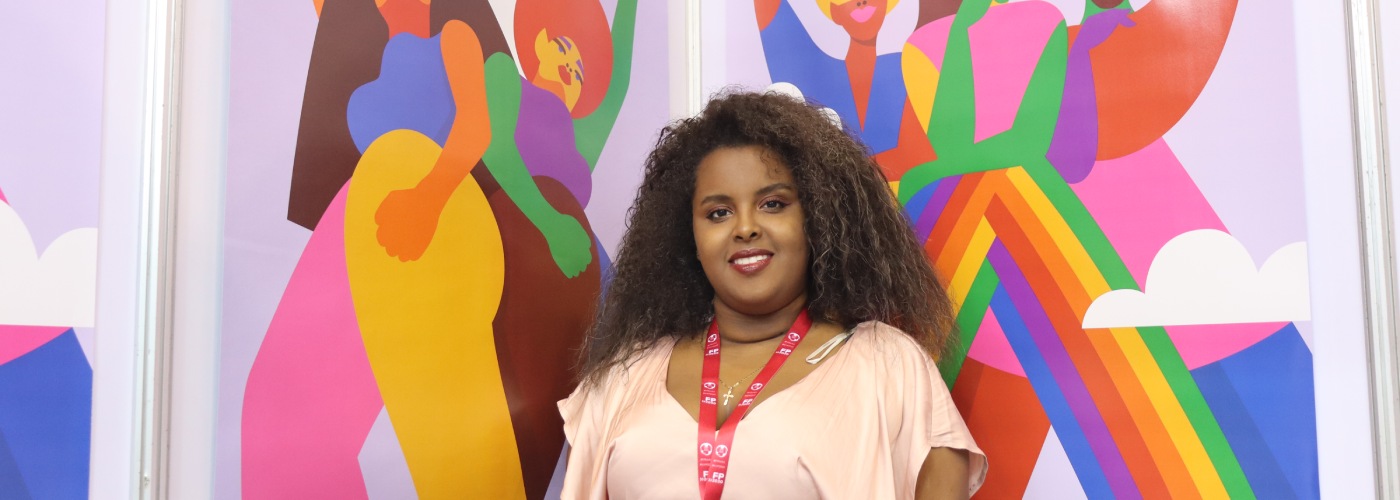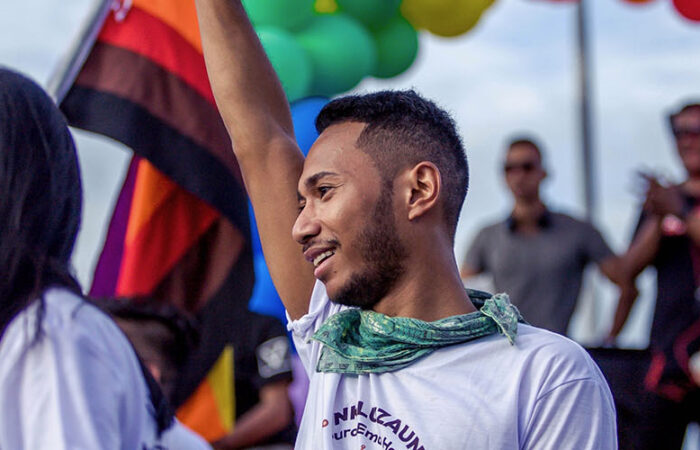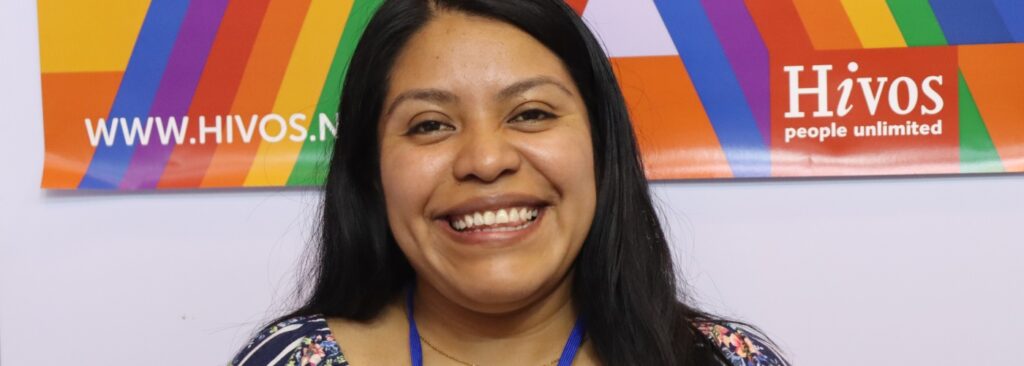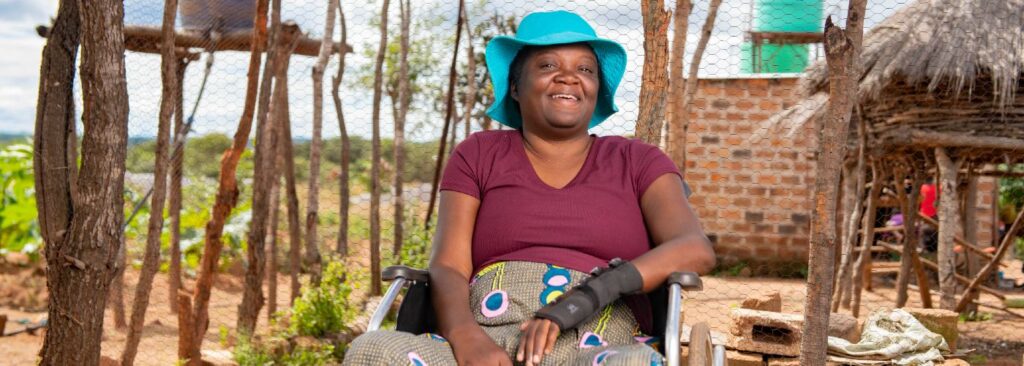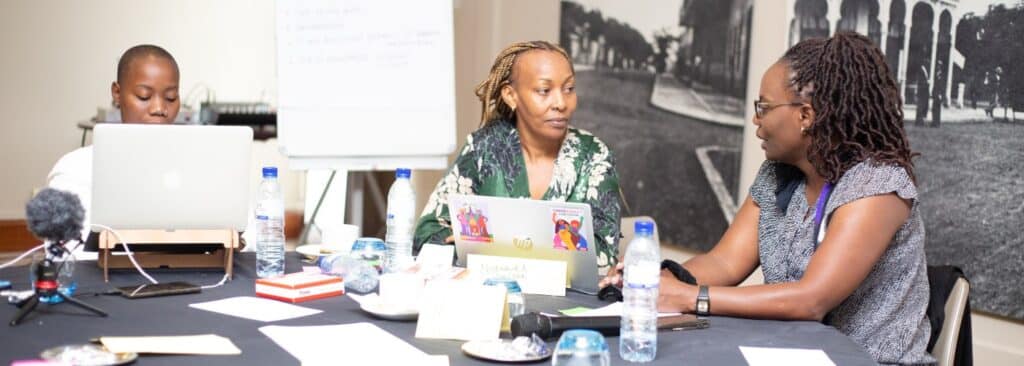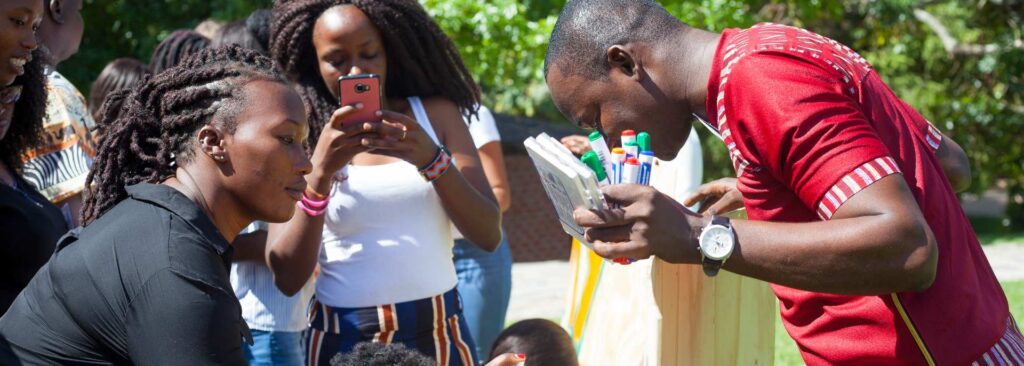We Lead in Lebanon: Fighting for sexual health of migrant women
Amira Gidey volunteers with Egna Legna, an organization in Lebanon led by and for migrant women. With the support of our We Lead program, Amira gives these women workshops on sexual and reproductive health.
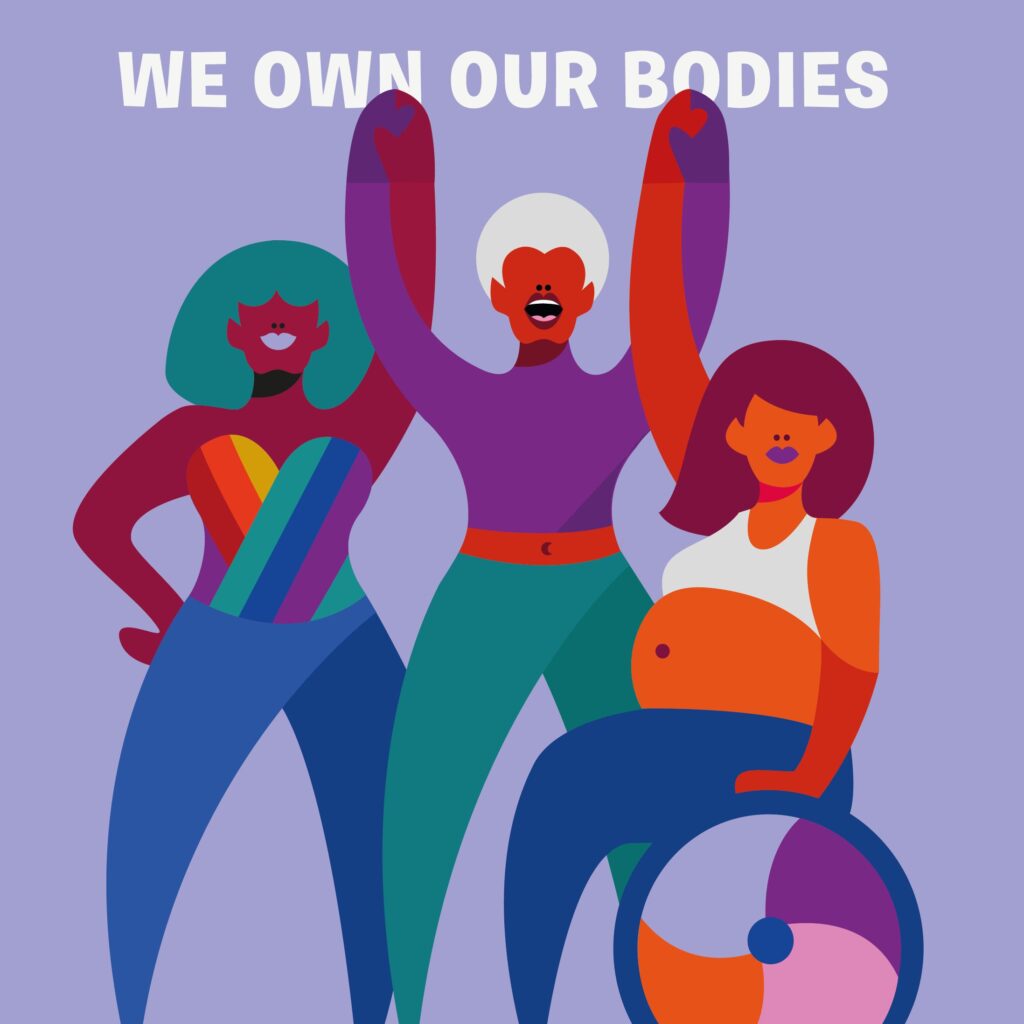
Thanks to We Lead, we’ve trained 90 migrant women on sexual and reproductive health and rights in Lebanon. Another 60 women have followed the train-the-trainer workshop. The We Lead community serves women of nine different nationalities and make sure that someone is present at every lesson to translate. This way every participant can follow and understand everything.
What problems do migrant women face in Lebanon?
“In Lebanon, all migrant women work as domestic workers. They become victims of modern slavery through the Kafala system. Under this legal system they have no rights and all power lies with their employers.
It starts when they arrive at the airport, where their passports are collected. Their contracts aren’t translated, so they don’t know what they’re signing. They hardly ever have free time; there are even women who are never allowed to go outside. So leaving home for medical treatment is difficult and they usually can’t afford it anyway. And if they do manage to visit a hospital or doctor, they face discrimination. If they don’t speak Arabic, no one will help them.
Migrant women are also regularly victims of sexual harassment and rape in the homes where they work. If a woman gets pregnant, her employer decides what to do. She could be given abortion pills or be put on a plane back home; she can’t decide for herself about her body.”
Why does this issue affect you personally?
“My parents are migrants from Ethiopia and Somalia who work as domestic workers here in Lebanon. I’ve seen them suffer all my life. My mother still earns below minimum wage and is unable to fend for herself.
I myself was very young when we arrived. So I studied nursing here and speak Arabic fluently. Yet all my life I’ve been treated differently because of my skin color. People assume that I’m a migrant and don’t speak Arabic. They ignore me. When I open my mouth they’re always amazed that I speak the language and can stand up for myself.
Having experienced this injustice up close is what made me determined to improve the position of fellow migrant women.”
-
Gender Equality, Diversity and Inclusion
How we support rightsholders in their efforts to claim the power, agency, and leadership necessary to drive change.
What do you do within the We Lead program?
“I give workshops on sexual and reproductive health and rights. In it I cover topics like contraceptives, STDs and sexual harassment and violence. The migrant women are mostly minors and know very little about their sexuality. They come from very conservative countries where this subject is taboo. By breaking through these barriers, they can take better care of themselves and stand up for their rights. I always encourage them to ask as many questions as possible because knowledge is power.
In addition to these workshops, I also give train-the-trainer workshops to migrant women who would like to train other migrant women. This way we make sure that as many of them as possible learn about sexuality and reproductive health.”
What are some of We Lead’s successes?
“We’ve trained 90 migrant women, and about 60 women have followed the train-the-trainer workshop. We serve women of nine different nationalities and make sure that someone is present at every lesson to translate. This way every participant can follow and understand everything.
Migrant women can always contact us for free STD tests. We partner with healthcare facilities that are inclusive, that ask women the right questions and don’t judge them. We also ensure that they receive free medicine, and I have follow-up conversations with them about whether the medication is working.
I’ve noticed that more and more women know how to find us and are daring to ask more questions. They come to us because they want the pill or, for example, because they think they have an STD.”
What is the nicest compliment you’ve received?
“A Sri Lankan woman in one of my workshops said, ‘I hope my daughter will be like you when she grows up. May she, too, change lives.’ A heartwarming compliment like that gives me extra strength to keep fighting to improve the lives of these women.”

